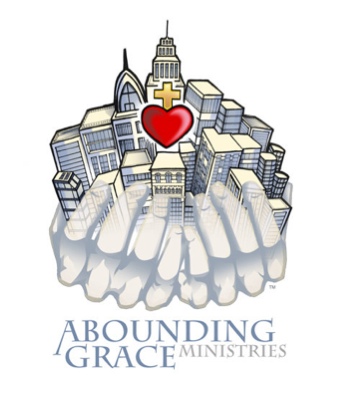– By Rev. Richard Del Rio | June 18, 2009
Dear Friends:
My wife and I have lived a paradox.
In 1982, we were called as evangelists to reach people and communities many believed to be unreachable.
“Where sin abounds,” our Bible taught us, “grace abounds more.” Find sin, we reasoned, and paradoxically we’d find grace.
 So we asked the NYPD where the worst drug spots were in New York City, figuring lots of drugs would mean lots of sin and by extension, according to Romans 5:20, even more grace. The NYPD directed us to Manhattan’s Lower East Side, at the time the epicenter of the city’s drug trade, so that’s where we took our three sons, ages 3, 6, and 8.
So we asked the NYPD where the worst drug spots were in New York City, figuring lots of drugs would mean lots of sin and by extension, according to Romans 5:20, even more grace. The NYPD directed us to Manhattan’s Lower East Side, at the time the epicenter of the city’s drug trade, so that’s where we took our three sons, ages 3, 6, and 8.
People questioned our judgment. How could we expose our kids to “those” neighborhoods with “their” violence, they asked. Their worst fears were realized when, at our very first street meeting, a drug deal went bad and our sons witnessed a stabbing. We went back the next week.
While our family was evangelizing others, intending to introduce “sinners” to grace, my wife and I learned later that our sons were among those who met Jesus. In June 2009’s Journal of Student Ministries, my oldest son Jeremy describes it this way:
“My affection for the LES, and the children who live there – those whom society describes as the most ‘at-risk,’ the poorest of the poor, the least likely to succeed – originated because I had come to know Jesus by loving them. They had given Jesus a face, a voice, flesh and blood. They made Him real for me. He made the invitation to love Him with my whole heart, mind, soul, and strength, and my neighbor as myself tangible through them. Learning how to love them sincerely, without expecting anything in return, taught me how to love Him.
“I went with the truck to evangelize, and instead, Jesus found me. He saved me through them.”
Another Paradox
In 1992, after a decade of reaching people who still felt like outsiders at neighborhood churches, these evangelists started a church. For years I believed we would never pastor a church, yet God paradoxically changed our heart.
 Today experts tell us that church planting is the best way to evangelize communities. In 1992, we didn’t know what “church planting” was. But we knew that Avenue D needed a church that would create community among the marginalized and dispossessed, the former drug dealers, prostitutes, and sinners for whom grace abounded so greatly. So that’s what we did.
Today experts tell us that church planting is the best way to evangelize communities. In 1992, we didn’t know what “church planting” was. But we knew that Avenue D needed a church that would create community among the marginalized and dispossessed, the former drug dealers, prostitutes, and sinners for whom grace abounded so greatly. So that’s what we did.
Again, people questioned our judgment. If we wanted to start a church, they told us, we needed to think about financial sustainability. The poor would never be able to sustain a church, they cautioned.
As before, the naysayers were partially right. The poor cannot cover the expenses of a church in a gentrifying neighborhood.
But the Kingdom of God can. And the Kingdom of God is the Gospel Jesus preached, a mission he defined as “good news for the poor.”
The King of that Kingdom forsook His heavenly throne to be born as a child of poverty. The Kingdom he proclaimed he described as a mustard seed; as a widow pursuing a lost coin; as a Father accepting back a wayward son; as a reviled Samaritan mending Jewish wounds.
His Kingdom is supported neither by military might, political grandeur, nor economic riches. Yet it manifests the will of God in an otherwise broken world. Nor could it be stifled in death.
The Ultimate Paradox
 I invite you today to join Abounding Grace in manifesting God’s will in a neighborhood that cannot afford it and among a people that have not earned it. I invite you to experience grace that abounds by joining us as partners in this amazingly paradoxical faith adventure.
I invite you today to join Abounding Grace in manifesting God’s will in a neighborhood that cannot afford it and among a people that have not earned it. I invite you to experience grace that abounds by joining us as partners in this amazingly paradoxical faith adventure.
Enclosed is a copy of “Rebuilding the Ruins,” which provides an overview of the ministry, along with an invitation to partner with us in tangible ways. I look forward to connecting in the next few days to explore possibilities further.
Thank you for your friendship and ongoing support.
In His service and yours,
Pastors Rick and Arlene Del Rio, Founding Pastors
